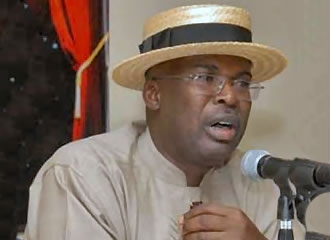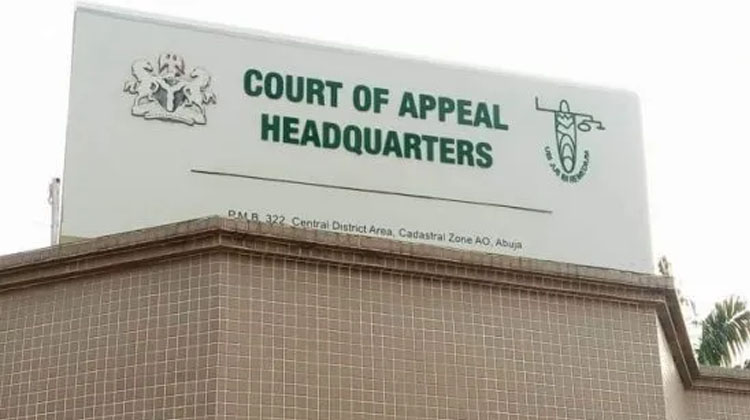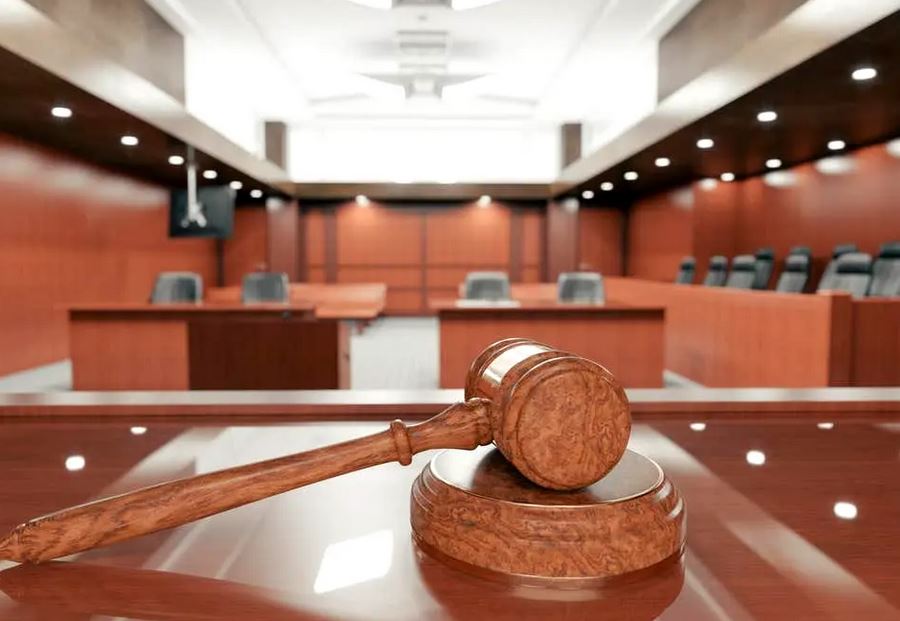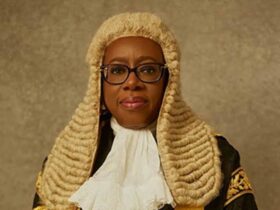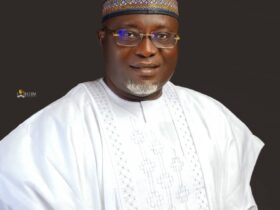Court of Appeal Abuja Division on Thursday reserved judgement on the appeal filed by proscribed Indigenous People of Biafra ,IPOB, seeking to set aside order of proscription and designation as terrorists organisation on September 20, 2017.
Presiding Justice of a three man panel Justice H.A. Barka said the date of judgement will be communicated to the parties when it is ready.
IPOB had filed the appeal challenging the decision of the then Acting Chief Judge of Federal High Court, Justice Abdu Kafarati who affirmed the order on January 18, 2018.
In the ruling, Justice Kafarati, had dismissed IPOB application that challenged the prosecution order He said it lack merit and ruled in favour of the Attorney General of Federation, AGF.
He also ruled that the processes followed in the proscription of IPOB as a terrorist organisation was proper and were in line with the Constitution of the Federal Republic of Nigeria as amended and the terrorism Act.
Dissatisfied with the ruling IPOB had approached Court of Appeal with prayers seeking to set aside it’s proscription.
Arguing IPOB’s appeal on Thursday, lead Counsel Chukwuma-Machukwu Ume, SAN, urged the Court of Appeal to hold that the appeal has merit and should be allowed.
He said the decision of the trial court was arrived at in error under “Judge in Chamber” procedure without any representation of IPOB. He further explained that “Judge in Chamber ” proceeding takes parties into the chamber for security reasons and parties are given opportunity to make their case,But in this case the respondent was denied fair hearing.
He said that the suit filed by AGF proscribing IPOB as a terrorist organisation was a criminal case that requires fair hearing .
Besides, the counsel stated that the proscription order made by federal government was not endorse by the President and Commander in Chief as required by the Constitution but signed by late Chief of staff to the President Abbas kyari.
In his response, representative of the AGF, Oyeloade Kolosho urged the Court to discountenance the appellant submission and dismiss the appeal.
He said that IPOB was given fair hearing.
Recall, that the Federal High Court in Abuja on January 18, 2018 dismissed the application by the Indigenous People of Biafra that had asked for an order reversing the order proscribing the group and designating it a terrorist organisation.
Delivering the ruling on IPOB’s application, the Acting Chief Judge of the Federal High, Justice Abdu Kafarati, resolved all the three formulated issues against the group, and held that the September 20, 2017 proscription order of the court was validly issued.
The judge awarded N500,000 as cost against IPOB for filing the “unmeritorious” application.
Justice Kafarati had on September 20, 2017, made the order proscribing IPOB and designating it as a terrorist group upon an ex parte application by the Attorney General of the Federation and Minister of Justice, Mr. Abubakar Malami (SAN).
But in a motion filed by the group before the same judge on September 22, 2017, it was contended that the proscription order was unconstitutional.
The motion was anchored on 13 grounds, first of which was that the proscription order was made without jurisdiction “as the order was granted against an entity unknown to law.”
The AGF office subsequently filed a counter-affidavit justifying the proscription order of the court.
Justice Kafarati heard the two parties on November 14, 2017 after which he adjourned for ruling on whether or not the proscription of IPOB should be proscribed.
In the judge dismissed the contention of IPOB’s lawyer, Mr. Ifeanyi Ejiofor, who submitted that IPOB was only registered in seven other countries and not in Nigeria, as such the group could not sue or be sued in Nigeria.
The judge noted that an organisation registered abroad could be likened to a foreigner who could be lawfully arrested in another country where he was found to have committed a crime.
The judge also held that the issuance of the proscription order by him in chambers following an ex parte application was in accordance with the provision of the Terrorism Prevention Act.
He said, “I hold that the ex parte application by the Attorney General of the Federation was properly brought.
“The Indigenous People of Biafra can sue and be sued in Nigeria. I so hold.”
He also held that hearing the AGF’s motion ex parte, did not violate the group’s right to fair hearing, rights to freedom of assembly, freedom of assembly and freedom of expression.
According to the judge, the procedure adopted by the court in hearing and issuing the ex parte order was as provided for in section 21 of the Terrorism (Prevention) Act.
He held that the AGF met all the requirements for the filing of the motion, including exhibiting the presidential order proscribing the organisation




